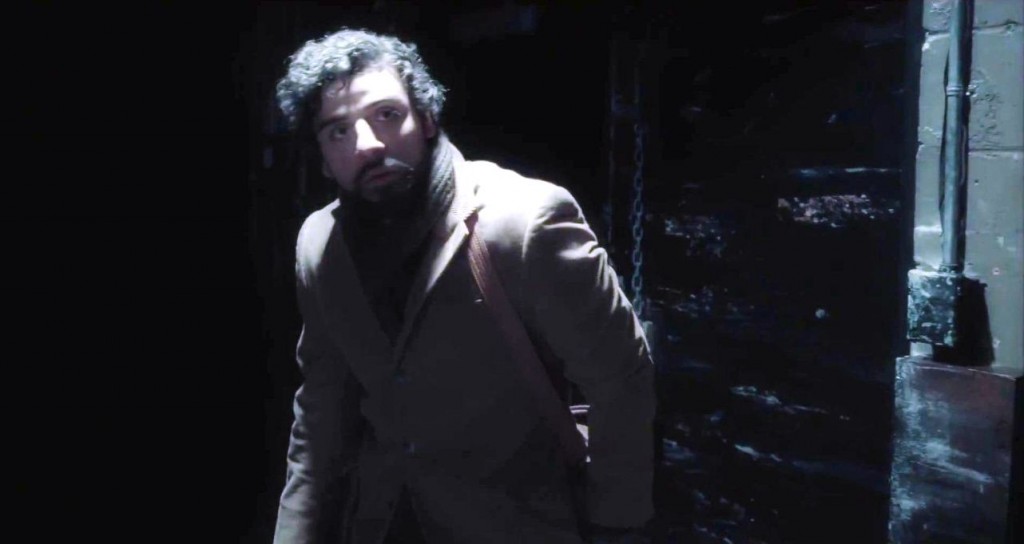Coen Bros: Inside Llewyn Davis part 2
As this excellent movie is still in theaters, let the reader beware: spoiler alert.
So there is Llewyn onstage, singing his ancient song of poverty and persecution. Is he a poser, an archivist, a revivalist? Or is he an artist?
It’s been bandied about that the character of Llewyn is based on Dave Van Ronk, “The Mayor of Macdougal Street,” a mainstay and centerpiece of the Greenwich Village folk scene. This is nonsense. Llewyn shares one or two biographical details with Van Ronk, but has none of his personality. More importantly, he has none of Van Ronk’s expansiveness, his desire to reach out, to promote, to connect. Llewyn is a very inward singer, up in his own head. He demands that the audience comes to him. That demand, in fact, is, I think what the protagonist wants. Llewyn Davis wants success, craves it, but insists that it be on his own terms. Like Bob Dylan (and the movie will continue to draw comparisons to Dylan), Llewyn refuses, absolutely refuses, do do what is expected of him.
Which brings us back to folk music. At a time when the Cold War reigned, when the shadow of nuclear apocalypse hovered over New York, when a hard rain very much threatened to fall, why did hipsters reach into the guts of American music? The movie being discussed never raises the specter of the nuclear shadow, it keeps the folk scene a show business phenomenon. The hipsters of Llewyn Davis sing folk music not because it speaks to them or because it connects them to their roots, but because there is a market for it.
That’s an important distinction. Because the next thing that happens to Llewyn is that he goes out to the alley behind the Gaslight and gets his clock cleaned by a lean, angry Southerner. The man sucker-punches Llewyn in a paroxysm of righteous fury. We don’t yet know who this telephone-pole of vengeance is, and the Coens shoot the scene with dispassionate observation, but we gather that Llewyn has misbehaved toward this man’s wife, “caused a scene” at his expense. Like the folk songs of old, the movie will come back and repeat this scene, and at that point we’ll know what it means, and when that meaning is revealed, then we’ll know what the movie is about.
To put yesterday’s question differently, “authenticity” is a key concept in Llewyn Davis. Who is authentic, who is not, who “means it” when they perform music, and who is faking it, who is willing to prostitute his or her talents for the sake of commerce, and who is not. Authenticity wasn’t an issue in O Brother Where Art Thou, the songs performed belonged to everybody. “Old-Timey Music” was a pop-culture fad of the day, and it was used as both a commercial and political tool, but it also rose up out of the very soil under the characters’ feet. The songs of O Brother were being sung whether anyone was listening or not. No such freedom is put forth in Llewyn Davis — all the songs (but for one crucial exception) exist on the commercial stage.
(The subject of American musical authenticity is a tricky one. A while back I read an article in the New York Times about how there is evidence to suggest that Robert Johnson, the King of Delta Blues Guitarists, enjoyed playing pop songs and show tunes in his live sets, but recorded his protean blues numbers “because there was a market for ‘race’ records” at the time. If Robert Johnson was motivated by commerce to sing the blues, then there is no authentic blues voice — it’s all show business. Which is also the subject of Llewyn.)
